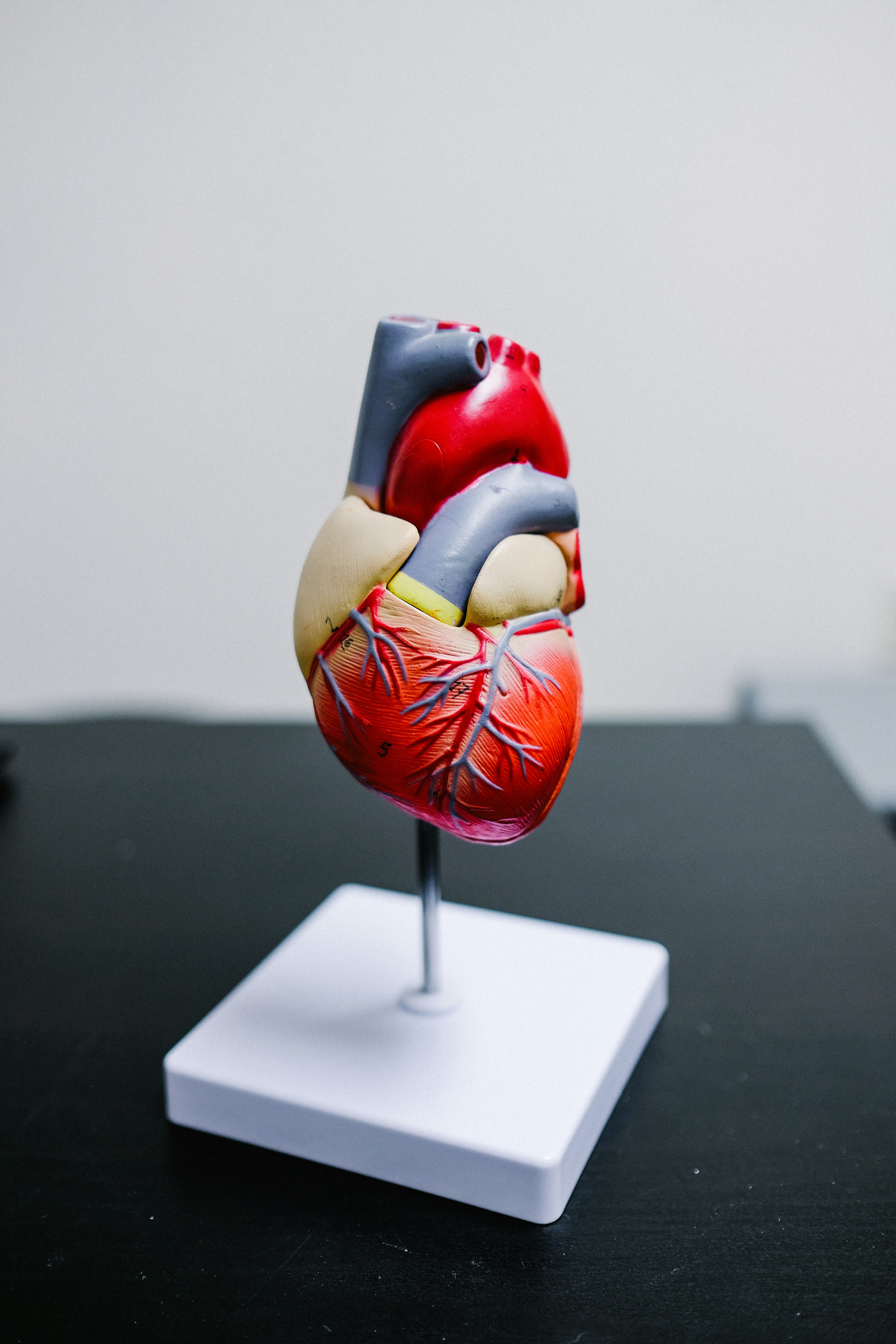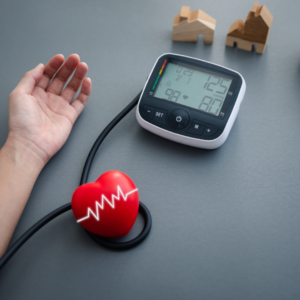
Nearly half of adults in the United States have high blood hypertension. It’s common for our blood pressure to rise and fall throughout the day, it’s when it becomes elevated chronically that we have some serious problems to address.
High blood pressure, also known as hypertension, is often referred to as the “silent killer” for a reason. It typically presents no visible symptoms, yet its consequences can be severe and even fatal. Checking your blood pressure regularly is a simple yet crucial step in maintaining good health. In this article, we will explore the significance of monitoring your blood pressure, the potential risks associated with hypertension, and how regular checks can contribute to a healthier and longer life.
Understanding Blood Pressure:
Blood pressure is the force exerted by circulating blood against the walls of the arteries. It consists of two measurements: systolic pressure, which is the pressure when the heart beats, and diastolic pressure, the pressure when the heart is at rest between beats. Blood pressure is measured in millimeters of mercury (mmHg), with the systolic value placed over the diastolic value (e.g., 120/80 mmHg).
Normal blood pressure typically ranges around 120/80 mmHg. However, consistently elevated readings can indicate hypertension. Regular monitoring helps individuals understand their blood pressure patterns and enables timely intervention if needed.
The Silent Threat:
One of the challenges with hypertension is its asymptomatic nature. Many people with high blood pressure are unaware of their condition until it leads to more serious health problems. Uncontrolled hypertension can damage arteries, leading to atherosclerosis, where the arteries become narrowed and hardened. This, in turn, increases the risk of heart disease, stroke, and other cardiovascular issues.
“In the past it was closer to 50% of people who had a heart attack, their first presentation was death.
Now, maybe one third of the first events are fatal.” -Peter Attia
That, in my humble opinion, is terrifying. 1 person out of 3 will have their first exposure to heart disease be a fatal event. If you read no further than this please let this be a grim reminder to start checking yours regularly. Especially, if you know you have a family history or you’re 30+ years of age.
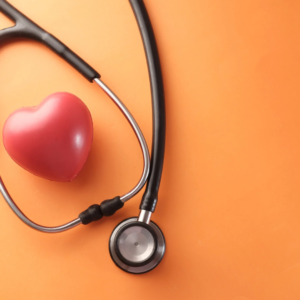
The Importance of Regular Checks:
Early Detection and Prevention:
1. Regular blood pressure checks enable early detection of hypertension. Identifying high blood pressure in its early stages allows individuals to take preventive measures, such as lifestyle modifications or medication, to avoid potential complications.
Heart Disease and Stroke Prevention:
2. Hypertension is a leading cause of heart disease and stroke. By monitoring blood pressure regularly, individuals can work with healthcare professionals to manage and control their blood pressure, significantly reducing the risk of these life-threatening conditions. Uncontrolled hypertension significantly increases the risk of cardiovascular diseases, including coronary artery disease, heart attack, and heart failure. The persistent strain on the heart can lead to long-term damage and compromised cardiac function. Hypertension is a leading cause of strokes. Elevated blood pressure can damage the blood vessels in the brain, increasing the risk of blood clots or ruptures that can lead to a stroke.
Kidney Health:
3. High blood pressure can damage the kidneys over time. Regular blood pressure checks help in the early identification of any abnormalities, allowing for interventions to preserve kidney function. The kidneys play a crucial role in regulating blood pressure. Uncontrolled hypertension can damage the kidneys over time, potentially leading to chronic kidney disease or kidney failure.
Lifestyle Modifications:
4. Monitoring blood pressure provides valuable data that individuals can use to make lifestyle changes. This may include adopting a heart-healthy diet, engaging in regular exercise, managing stress, and avoiding excessive alcohol and tobacco consumption.
Medication Management:
5. For those already diagnosed with hypertension and prescribed medications, regular blood pressure checks are crucial to ensuring that the prescribed treatment is effective. Adjustments to medication or dosage can be made based on the monitored readings.
Overall Health Awareness:
6. Regular blood pressure checks contribute to overall health awareness. Understanding one’s blood pressure status empowers individuals to actively participate in their health management, fostering a proactive approach to well-being.
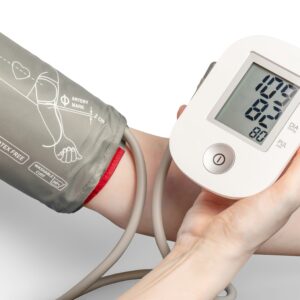
How to Monitor Blood Pressure:
Home Blood Pressure Monitors:
1. Home blood pressure monitors are readily available and easy to use. Regular self-monitoring provides a more comprehensive picture of blood pressure trends, allowing for early intervention and improved management.
I really like the OMRON Platinum blood pressure monitor from amazon. Should be around $84.
Pharmacy and Health Clinics:
2. Many pharmacies and health clinics offer free blood pressure checks. Taking advantage of these services is a convenient way to monitor blood pressure regularly, especially for those without access to home monitoring devices.
Regular Healthcare Visits:
3. Scheduled check-ups with healthcare providers allow for professional monitoring of blood pressure. This is particularly important for those with existing health conditions or risk factors.
Regular blood pressure checks are a fundamental aspect of preventive healthcare. The silent threat of hypertension necessitates a proactive approach to monitoring and managing blood pressure. Whether through home monitoring devices, pharmacy check-ups, or healthcare visits, taking the time to understand and track your blood pressure is a small investment that can yield significant long-term health benefits. Prioritizing regular blood pressure checks is a vital step towards a healthier, happier, and longer life.
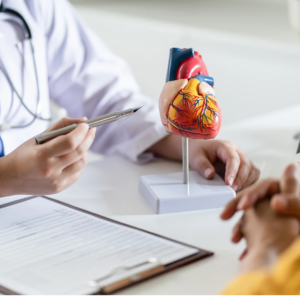
![]()
![]() There are some subtle signs that may indicate elevated blood pressure. Understanding these initial symptoms is crucial, as early detection allows for timely intervention and risk reduction. Let’s take a look at a few of these.
There are some subtle signs that may indicate elevated blood pressure. Understanding these initial symptoms is crucial, as early detection allows for timely intervention and risk reduction. Let’s take a look at a few of these.
Headaches and Dizziness:
1. Persistent headaches, especially those located at the back of the head, and dizziness can be early indicators of high blood pressure. The increased pressure within the blood vessels can affect the blood flow to the brain, leading to these symptoms. While headaches and dizziness can result from various causes, their persistence warrants attention and blood pressure monitoring.
Blurred Vision:
2. Changes in vision, such as blurred or double vision, may be associated with hypertension. The increased pressure can affect the blood vessels in the eyes, impacting vision. Individuals experiencing visual disturbances should seek medical attention promptly to rule out potential blood pressure-related issues.
Shortness of Breath:
3. Difficulty in breathing or shortness of breath, especially during physical activity, may be linked to high blood pressure. As the heart works harder to pump blood against increased resistance in the arteries, individuals may experience breathlessness. If this symptom is persistent or worsening, it’s essential to consult a healthcare professional.
Chest Pain:
4. Chest pain or tightness can be a sign of severe hypertension, leading to potential complications such as heart attacks. While chest pain can be attributed to various conditions, individuals with hypertension risk factors should not ignore this symptom. Seeking immediate medical attention is crucial to rule out cardiovascular issues.
Fatigue and Sleep Disturbances:
5. Persistent fatigue, especially coupled with difficulty sleeping or frequent awakenings during the night, may be related to high blood pressure. The strain on the cardiovascular system can affect overall energy levels and disrupt sleep patterns. Addressing these symptoms early can contribute to better blood pressure management.
Recognizing the first symptoms of high blood pressure is pivotal for early intervention and risk reduction. Individuals experiencing these symptoms, especially those with known risk factors, should promptly consult healthcare professionals for comprehensive assessments and appropriate management strategies. Monitoring blood pressure regularly and adopting a healthy lifestyle are key steps in preventing and managing hypertension.
Just like a person’s weight, checking this on a weekly basis and being consistent can really help expose patterns. With those patterns you can start to sharpen your lens on exactly where to go next and start to eliminate guessing.
We want to know what game we’re playing and which problems to solve. We rarely can do that without measuring and logging. Then we take emotions out of the equation and can look at raw data to help support our path.
I’m very sensitive to how weekly exposure to the scale can be hard for some people, but I can’t emphasize enough the importance of checking your blood pressure weekly. It truly could save your life.
You coach, -Matt



